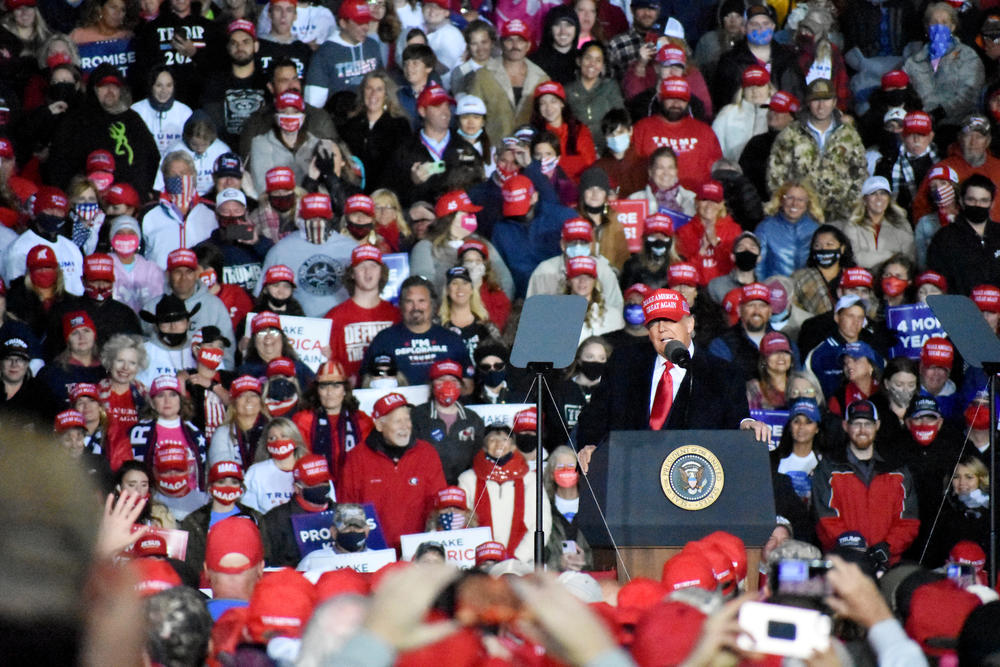
Caption
President Donald Trump speaks at a November 2020 campaign rally in Rome, Ga. The former president continues to wield great influence over the Georgia Republican Party despite losses in the state's presidential and Senate races last year.
Credit: Stephen Fowler | GPB News

